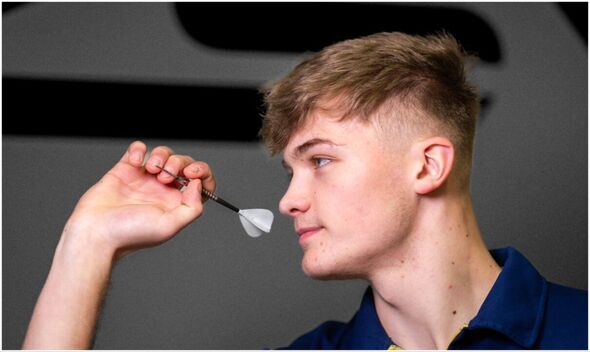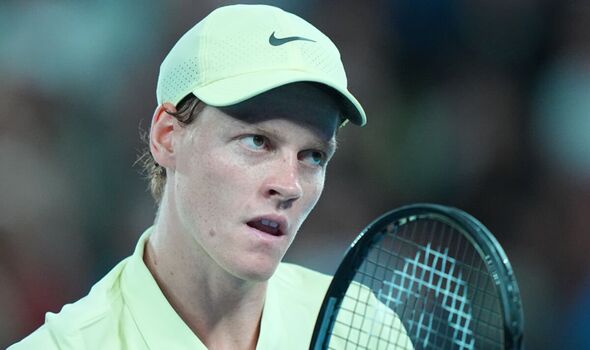Ukraine mobilizes troops amid crisis with Russia
March 2, 2014
Beneath the Hypocrisy, Putin Is Vulnerable. Here’s Where His…
March 3, 2014The desire to pay tribute to its creator explains why the normally media-shy Bankier is prepared to make an exception when invited to discuss the legacy of the man who saved Celtic Football Club two decades ago.
The chairman has it in his gift to unfurl the league flag but his avowed determination always to find others to peform the task is a reflection of McCann’s influence. “When I met Dermot [Desmond] his first statement to me – and remember, this is a sizeable shareholder who you could call an owner, with a shareholding that gives him a controlling share of the company – was that he was not an owner of the club, he was just a custodian.
“I remember thinking it was a strange thing to say because I’d never thought of it that way and I thought he was probably being self-effacing. But when I got into the job and understood it, I realised he was being absolutely literal.
“He just sees it as that – ‘I’ve got it for now but I’ve got to pass it on in good shape. My reputation stands for that’.”
Here, in a rare interview, Bankier reflects not only on the achievements of the past 20 years but also on the challenges facing the club and on the longer term future of what is Scotland’s most successful sporting organisation.
ON the mccann years
I personally didn’t know Fergus very well, but at the time when he was active here I was a partner with McGrigor Donald so I was aware of him because he was in and out of the office.
The partner he dealt with was Kevin Sweeney who was literally next door to me, so I would have met him, knew who he was, what he was trying to do and was very much aware of the story at the time.
He was a remarkable fellow because he was of notably small stature and I think he took the people of Glasgow by surprise when he said: ‘I’m going to bail out Celtic’.
It took people a while to take him seriously, but that he did.
On the McCann legacy
He did two things, one physical and one spiritual. The physical thing was this stadium. I think there’s no doubt that this stadium set Celtic Football Club on a different path.
It turned a corner at that stage and created a facility that people would actually want to turn up to and here it is today.
You walk out there and you go: ‘My god, what a stadium.’
In terms of the spiritual side of it, it’s this culture of governance. I think we were very aware of it at the time because we were working as lawyers for him, but he had an acute sense of the stakeholder body in a club like Celtic; by which I mean stakeholders in the broadest sense – from shareholders, to fans, creditors, to people who were employed by the company and people employed by companies who supplied the company. That’s the kind of broad church of stakeholders as it’s understood. He had an acute sense of just how wide that was.
Public company status would have brought with it a baggage of corporate governance duties, but I remember distinctly just how keen he was to get the right people on the board and look after the club.
You have to make a definitional difference between people who are passionately interested in the welfare of Celtic Football Club.
There is the single focus fan who could well be from a good and solid business background and then there is the broad, rounded professional businessman who is no less passionate about the fortunes of the club but has a sense of greater worldliness about him and a sense of balance as to when is the right time to do something, about when enough is enough.
He [McCann] appointed some key people – like Sir Patrick Sheehy, a significant figure in international business circles and an academic; Brian Quinn, former deputy governor of the Bank of Scotland; Dermot Desmond, international businessman – tapping into global Celts, as we call them, but bringing the ingredient that there’s a broader focus to be had, rather than the extremely narrow focus of the east end of Glasgow. One thing I will tell you about football is that it’s very difficult to keep your focus because it’s all about the next 45 minutes.
Short-term is the highest priority in this business, when the way to run a business is to have a long-term view about what is going to happen next and next and next again.
These people he appointed completely understood all the things Fergus understood and they kept it going and almost ramped it up from where Fergus had it. Brian Quinn, in particular.
On Mccann’s foresight
I don’t know if Fergus had the vision to see the state of Scottish football as it is today with the wages and the declining viewing figures. In a general business sense, the key thing is that you have to have a realism about you and know where reality is.
I’d single out the entrepreneur. The 100% entrepreneur sees no risk and takes massive risk in everything and either goes spectacularly bust or does spectacularly well. He’s not so observant of reality.
At Celtic there’s no room for that. You can’t have an out-and-out entrepreneur running the football club because of this point about stakeholders. You could be playing with people’s lives, their emotions, morning, noon and night and you mustn’t do that. However, you can’t be risk averse because you need to take risk in this business. You’ve got to have people – and that’s back to the quality of people on the board and their experience of life and world markets – who are capable risk takers, but they’ve not got to be passionate entrepreneurs.
You tend to get considered risk takers in larger organisations and public companies and you tend to get out-and-out entrepreneurs in smaller concerns, in owner-driven businesses. That’s the sort of distinction that needs to be made.
On what sets Celtic apart
One thing is the momentum that has been created by working this particular model, which is that the company must live within its means but use every ounce of intellectual capital to maximise the brand at every opportunity.
So in terms of scouting and attracting players to the club, we take maximum advantage of the fact that it’s Celtic and the whole culture of the club is attractive around the world.
It’s a very high profile club within a small pool, but it’s right next door to the biggest and most successful league in the world, the English Premier League, so you can have several extremely good years here and then see it as a rite of passage to move on. That’s our business model.
We must buy at value and sell the player on at enhanced value and that pays the bills, because media rights and season-ticket income isn’t going to do it at any club.
On David Low’s assertion that Celtic are now in competitive limbo, too dominant in Scotland, but lacking the financial clout to compete with Europe’s elite
It’s not black and white that: ‘there is no competition in Scotland, therefore it’s a problem’. There is competition in Scotland. The cups have proved that. It’s a question of where you want to take the heat.
If we were winning everything then it could be said there was no competition, but there is and in the games we’ve lost this season the opposition have played really well. We’ve been beaten soundly and we’ve deserved to be beaten.
It hasn’t been the capriciousness of referees’ decisions or we were bad on the day, we were beaten by better players on the day. So there is local competition and it’s pleasing that there is because we need that and it’s pleasing that clubs like Aberdeen, Dundee United and Motherwell have picked up the baton. It’s natural forces. That will happen.
People then discount Europe and say apart from that there’s no competition. You say, ‘well wait a minute, there’s qualifying matches and then Champions League matches and then we might get to the last 16 and that’s another two legs’. That’s a solid third of the season playing in Europe. So it’s not proportionate to, in a breath, discount Europe. Our ambition ought to be to qualify, which is no mean feat, and then to participate at a high standard of play in the group stages and then very occasionally break through which is way above our weight fighting-wise when you look at the size of the clubs competing in the last 16.
On pan-British competition We’re not going around knocking on doors, because we feel that makes us look too needy, but we are super alert to the opportunity because the facts are that we deserve a bigger arena for the sheer size of the club.
A bit like the Berlin Wall coming down, these things happen when people least expect it and when they happen, they happen very quickly.
We have excellent relationships in Europe at every level and we have as high a profile as you could wish for when we participate in Europe.
When we played Barcelona in the group stages the car park was choc-a-bloc with media from all over the world. This was just a bog standard group stage game but it was getting semi-final status from the media.
That’s the sort of stuff we need to be happening and we can capitalise on. Another thing that was most gratifying was that when we went to Milan and to Ajax the first thing they said was: ‘When your name came out of the hat we were delighted. We think it’s a glamour fixture to get Celtic.’
On the Celtic mindset
We’ve milked it because the history and the culture of Celtic is that we’ve always felt less privileged and therefore we’ve had to maximise everything we do because we have not come from a position of advantage. That’s the kind of energy within the club. I would say it’s the paranoia. It’s in the DNA. The feeling that we come from a disadvantaged background has propelled us.
On pursuing the club’s founding principles
We reorganised our charitable activity five years ago and now have a foundation which has raised a record amount in terms of any other football club in the UK. That is absolutely a main engine in the business that we are more than just a club and respect our charitable roots, not only in the east end of Glasgow but across the UK. We’re doing a lot directly connected to the DNA of Celtic which is Brother Walfrid and food tables.
On a broader involvement for Celtic in Scottish sport
The people in European football we talk to who have other sports clubs say it’s a headache, usually a financial one, because when the basketball team needs money when it’s starving, it comes from football, which is a conflict as the fans would see it. It’s something we have considered. We looked at sponsoring the basketball team at the Emirates and we’re not averse to that as an idea, but we’re not doing anything about it at the moment.
I think what we need to do now is once this place [the redevelopment work on the frontage at Celtic Park] is built and the Commonwealth Games goes through we want to be examining the possibilities and the opportunities in the aftermath. It excites us. Our perspective is, how do you join up the facilities now?



